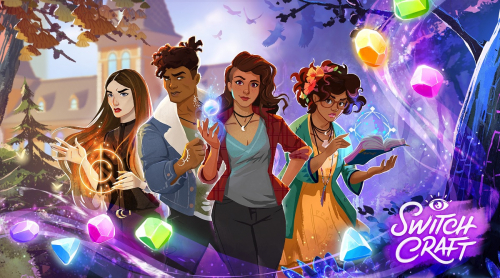Wooga’s Switchcraft leads the way for casual puzzle mobile game diversity
Nov 08, 2021
Switchcraft developer Wooga, which is part of Playtika, has highlighted the lack of representation within the casual puzzle mobile game genre. The findings come from research it commissioned from market analysis firm Naavik, which analysed the top 50 casual puzzle mobile games in the western market.

Across the top 50 casual puzzle titles, only 20 percent of main cast characters are BIPOC and only 4 percent of lead characters are BIPOC. The vast majority, or 80 percent, of lead characters in the leading casual puzzle titles are female. This drops to 36 percent for lead supporting characters.
Out of 314 characters across the top 50 casual puzzle titles, 40 percent of titles have no BIPOC representation, with all of the main promoted characters in the games being white. In comparison with the leading top 50 casual puzzle mobile games, Switchcraft has an equal split of male to female representation. Additionally, of the main cast included in the game, 63 percent of those are from BIPOC backgrounds.
According to the research, there is no LGBTQ+ representation among lead characters within the top 50 casual puzzle mobile games, with only 1 percent of main cast characters identifying as LGBTQ+.
In Switchcraft, 38 percent of characters fall within the LGBTQ+ bracket, and this potentially rises to 50 percent thanks to the option for players to choose the sexuality of the main character, Bailey Ward.
On October 11th, Switchcraft was launched on mobile devices worldwide, and features wider diversity, such as sexuality and disability, within its narrative.
Switching it up
Commenting on the research Wooga managing director Nai Chang commented:
“A big focus when developing Switchcraft has been on ensuring it has a diverse cast of characters, and we see Switchcraft as a gamechanger for casual puzzle games in terms of levels of diversity”.
“Efforts to embed diversity right throughout the game – in a rigorous and authentic way – were driven by the Switchcraft game team themselves. Our team that created the game included 14 different nationalities and a strong core of female developers.
“The team felt, just as we as a studio feel, that gamers should be able to see their own identities, as well as diverse experiences and backgrounds, reflected in the games they play. We hope for a time when this level of diversity isn’t distinctive, and we want to play our part leading this important conversation in our industry.”
Representation within the games industry does not pertain to just the games themselves, but there is industry-wide underrepresentation of different cultures and ethnicities.
